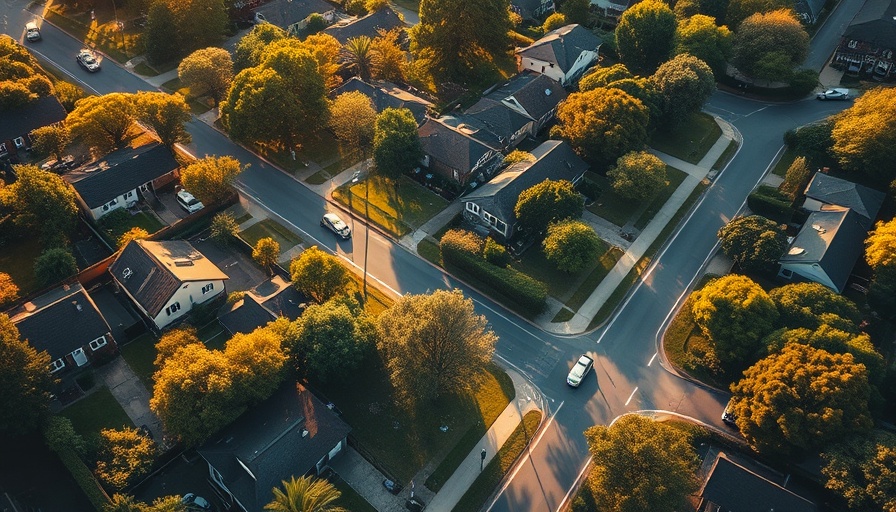
Understanding the Impact of Heat Waves on Homes
This summer's relentless heat wave across the Tri-State area is more than just an inconvenient weather event; it represents a pressing climate trend. As the EPA reports, extreme heat occurrences in the U.S. are escalating. For homeowners, this isn't just a temporary discomfort; it's a reminder that our living spaces may suffer long-lasting effects. The combination of high heat and humidity unique to our region can lead to mold growth, wood swellings, and even structural vulnerabilities in homes over time.
Practical Tips for Staying Cool
During a heat wave, simple adjustments can significantly enhance comfort and protect your property. Here are several effective strategies:
- Utilize a Dehumidifier: Although it doesn't lower temperatures, a dehumidifier removes excess moisture from the air, which helps maintain a cooler environment and decreases the risk of damage from mold and mildew.
- Light Bulb Changes: Switching to LED bulbs can lower heat output compared to traditional bulbs, making your home cooler and reducing energy costs.
- Install Ceiling Fans: Ceiling fans can promote air circulation, leading to a more comfortable atmosphere without straining your air conditioning.
Long-Term Risks of Climate Change
It's essential to recognize that these heat waves are not merely seasonal anomalies; they're symptomatic of broader climate change impacts. If left unaddressed, the conditions could make properties in the Tri-State area increasingly susceptible to heat-induced damages. Homeowners should be vigilant about monitoring their living conditions, particularly as prolonged exposure to heat can severely compromise structures.
Staying Safe: Emergency Preparedness
Heat emergencies can escalate rapidly, making it crucial to be prepared. Here are a few steps to enhance safety during extreme heat:
- Emergency Contacts: Maintain a list of local emergency contacts and services. Knowing whom to call for help, from local health services to cooling centers, can be invaluable.
- Tip for Neighborly Care: Check in on elderly neighbors or those who may be more vulnerable during extreme temperatures. A simple visit can save a life.
Community Resources for Navigating Extreme Heat
Local authorities often provide resources to assist residents during heat waves. Whether it’s cooling centers, information hotlines, or community programming aimed at educating the public about heat safety, make sure to take advantage of these offerings. Knowing where to go for help can make all the difference in a heat crisis.
Investment in Home Comfort
In the long term, it's also beneficial to consider investing in home improvements that enhance heat resistance. Strategies could include better insulation, upgrading HVAC systems, or even exploring energy-efficient windows and doors. Although these upgrades might require an initial investment, they can be crucial in maintaining a comfortable indoor climate while safeguarding your property from future heat waves.
Final Thoughts: Importance of Awareness
As climate variability continues to affect our living conditions, awareness of how to adapt our homes for extreme weather becomes increasingly vital. Homeowners should not only practice immediate strategies to stay cool but also consider how their properties can better withstand the challenges posed by climate change. Being proactive is essential.
 Add Row
Add Row  Add
Add 




Write A Comment